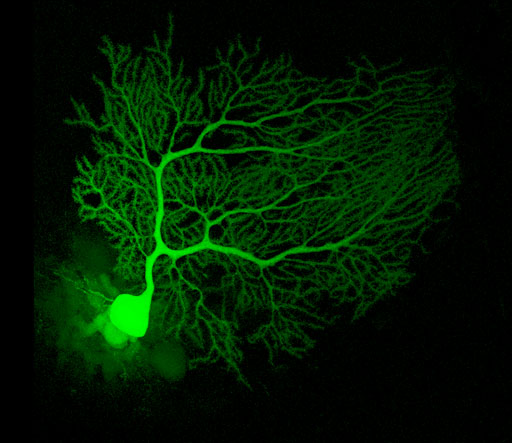Growing up, I was never the athletic one of the family. While my siblings excelled in all things sports, I was always the last one picked for the team in gym and the slowest one to finish the race, if I finished at all. I convinced myself that I was just “not built” for sports, and gave up before even trying.

I think I’ve come pretty far now. I can keep up with my family on long bike rides, deadlift almost twice my bodyweight, and hike from sunrise to sunset. What changed? I started to adopt a growth mindset, a mentality that is not only helpful in achieving material goals but essential for the spiritual life. Although I have a long way to go, whenever I do embrace a growth mindset, the fruits are powerful.
Fixed vs. growth mindset
Our mindset shapes much of our daily thoughts and behavior. It’s the view we have of our personal qualities and abilities – where they come from and where they’re going.
Any given mindset lies on a spectrum between two extremes:
- A fixed mindset is the belief that our qualities and abilities are carved in stone, something we are born with rather than something we develop.
- A growth mindset is the belief that we can cultivate our qualities and abilities. Although everyone differs in innate talents and potential, we can all improve through effort.
Chances are, we don’t just have one or the other. We might have a growth mindset about artistic expression, but a fixed mindset about academics. For other qualities, we might land somewhere in between. Whichever mindset we have guides our thoughts and behavior in that particular area.
Most people struggle with a fixed mindset in at least one domain of their life. A fixed mindset works against us in a few different ways. First, it creates an urgency to prove ourselves over and over, because we see criticism as an attack on our character. It also reduces our drive for learning and practice, because we may implicitly doubt we can improve at all. Finally, it negatively impacts our self-worth, because we begin to see failure as a reflection of who we really are.
A growth mindset, on the other hand, gives us more drive to learn and practice. It helps us welcome feedback, embrace challenges, and view every experience as an opportunity to improve. With a growth mindset, we have the passion to stay the course, even when things are tough.
According to Carol Dweck’s research, a growth mindset favors both future success and hope in the present moment.
Why does a growth mindset help?
A growth mindset is powerful because it is in line with how the brain works.
Neuroplasticity is the brain’s ability to change. For a long time, scientists thought that a fully-formed brain didn’t change until it started degenerating with age. Then, in the second part of the 20th century, they discovered that brains are “plastic,” or can be altered. Connections between neurons are constantly remodeled, strengthened and weakened over time.

Whenever we learn something new, change a habit, of have a new experience, the structure of our brain changes. In other words, neuroplasticity underlies all learning and memory.
This is especially true for younger people; the developing brain shows an even greater degree of neuroplasticity. And this doesn’t just mean kids, as the prefrontal cortex – the region of the brain active in decision making and higher-level thought – doesn’t finish developing until your late twenties.
So a growth mindset is powerful because it reflects the reality of our underlying neurobiology, whereas a fixed mindset rejects that truth.
Believing that we can change allows us to harness the plasticity of our brain. Believing that we can improve helps us work hard to re-wire our neurons. Because our characteristics and abilities are set in plastic, not stone.
Growth mindset and the spiritual life
This isn’t just helpful for improving our fitness (as fun as that is). It also applies to the spiritual life.
All too often, we can get caught in a fixed mindset in our relationship with God. We think that our faith is something static that we were born with, so we take God’s graces for granted, and have little reason to try to strengthen our prayer life, our sacramental life, and our relationships with others. The habitual sins that we have struggled with for years may seem set in stone. So why should we even work for conversion?
What results is a spiritual paralysis.
A growth mindset is more important than ever when it comes to the spiritual life. Because we are all called to become saints.
Ultimately, believing that our relationship with God is set in stone is a rejection of His grace. If we don’t belief that you can change, that you can be made more holy, or that we can conquer habitual sin, we are doubting God’s power. Of course, none of these things can happen without the Christ’s saving gift of Himself. But they also demand an active participation. We have to be open to His radical power to transform.

Let us remember Christ’s invitation, “Let the children come to me” (Matthew 19:14). We are to be childlike in our confidence in Him. We are to remain open and hopeful about the good His grace can accomplish in us. For His mercies are new every morning (Lamentations 3:22-23).
Further reading recommendations
On mindset, read Carol Dweck’s book Mindset: The Psychology of Success.
Flannery O’Connors works often portray the drama of our struggle to accept God’s grace. For a great introduction to her work, try Revelation.
On the universal call to sanctity, read Lumen Gentium, or Fr. Luigi Giussani’s “Morality: Memory and Desire.”
















